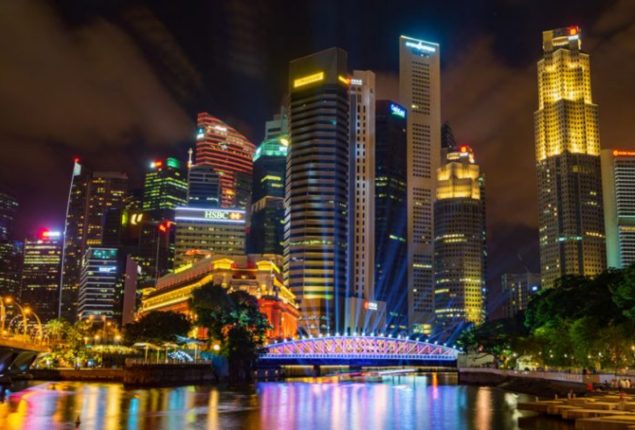Singapore to carry out first execution of a woman on drug-related charges in nearly two decades
Singapore is set to execute a woman, Saridewi Djamani, for drug trafficking....

Singapore’s $2 billion dirty-money scandal unveiled
A sensational case, in which 10 Chinese nationals were charged for laundering $2.2 billion (£1.8 billion) earned from criminal activities abroad, has seen a Singaporean court begin handing out sentences.
The scandal involved multiple banks, property agents, precious metal traders, and a top golf club. It triggered extensive raids in some of the most affluent neighborhoods, where police seized billions in cash and assets. The lurid details have gripped Singaporeans – among the seized assets were 152 properties, 62 vehicles, shelves of luxury bags and watches, hundreds of pieces of jewelry, and thousands of bottles of alcohol.
Earlier this month, Su Wenqiang and Su Haijin became the first to go to jail in the case.
Police stated that Su Haijin jumped off the second-floor balcony of a house while attempting to flee arrest.
Both men will serve a little over a year in prison, and then authorities will deport them and bar them from returning to Singapore.
Eight others are still awaiting the court’s decision.
Even as it draws to a close, the case – the biggest of its kind in Singapore – has raised inevitable questions. Prosecutors said that the money that funded their plush lives in the country came from illegal sources overseas, such as scams and online gambling.
How did these men, some of whom had multiple passports from Cambodia, Vanuatu, Cyprus, and Dominica, live and bank in Singapore for years without drawing scrutiny? The situation has sparked a review of policies, with banks tightening rules, especially around clients who hold multiple passports.
Most importantly, the case has spotlighted the country’s struggle to welcome the super-wealthy without becoming a destination for ill-gotten gains.
In the 1990s, Singapore, often referred to as the Switzerland of Asia, began wooing banks and wealth managers. Economic reforms in China and India had started to pay off, and in the 2000s, a newly stable Indonesia also experienced wealth growth. Soon, Singapore emerged as a haven for foreign businesses, offering investor-friendly laws, tax exemptions, and other incentives.
Today, the ultra-rich can fly into Singapore’s private jet terminal, indulge in luxurious quayside neighborhoods, and engage in speculation on the world’s first diamond trading exchange. Just outside the airport, Le Freeport is a maximum-security vault that provides tax-free storage for fine art, jewels, wine, and other valuables. Many people often refer to the $100 million facility as Asia’s Fort Knox.
According to the country’s market regulator, Singapore’s asset managers attracted S$435 billion from abroad in 2022, nearly double the figure recorded in 2017. A report by consulting giant KPMG and family office consultancy Agreus indicates that more than half of Asia’s family offices – firms that manage private wealth – are now located in Singapore.
Catch all the International News, Breaking News Event and Latest News Updates on The BOL News
Download The BOL News App to get the Daily News Update & Follow us on Google News.